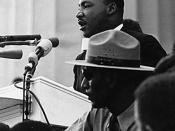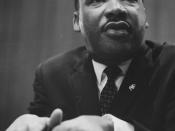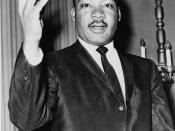1.The fact or state of having committed an offensive crime violation or wrong.
2.A feeling of responsibility or remorse for some offence, crime or personally defined wrong, real or imagined.
Guilt is an emotion associated with being remorseful. We scrutinize ourselves against an internally established code of conduct and may find that it becomes necessary to feel guilt for something said, done or possibly even thought. Guilt can be an incredibly powerful emotion with very little tangible reason as to why it should be. There are two main functions of guilt. It can serve as a way of punishing oneself for bad behaviour, or it can also be a catalyst for changing whatever situation caused the feelings of guilt in the first place. Both of these functions can help people to have a better social conscience by caring about how their actions affect other people. In fact, people who don't feel guilt and remorse from time to time are considered mentally ill.
However, guilt can also have harmful effects when it causes people to withdraw from others. Also, there are occasions where people feel irrational guilt for things that are beyond their control. It is only natural, but in this case it is counterproductive.
However Guilt isnÃÂt something we can put our figure on or control easily. You canÃÂt classify it, we canÃÂt define it, and they canÃÂt explain it. You feel it. We become engulfed by it and they use it. ItÃÂs an emotion. ItÃÂs a state of mind. ItÃÂs a sickness. ItÃÂs a defence mechanism.
The way in which we ignore and embrace guilt is in fact the way in which we live our lives. Those who pursue degrees, chase the big money, orientate their lives around an egotistical attempt to obtain success, those are the people that manage to concern themselves more with the stock market on Wall Street rather than the slave markets in Bombai. Those are the people who feel guilt for breaking a friendÃÂs trust yet feel they are victim to an injustice in the system because they were charged with grievous bodily harm which was later upgraded to manslaughter even though guy who they put in the coma said his mum was a whore. Those are the people who feel guilty for the petty things, the insignificant and irrelevant. These are the people who think they know guilt. They pretend to understand it and comprehend what it means. 90% or more of the human civilisation thinks they know guilt, thinks they can explain the sickening gut wrenching feeling whilst in the period of anticipation for a ramification to ramify. They think they know. I donÃÂt. They donÃÂt. We never will. Until we can, guilt will be perceived as what we presume it to be. It will be defined on a case by case basis.
Martin Luther King was quoted saying ÃÂwe are oblivious to guilt; whilst it is there we are unbeknownst to it, naive and ignorant. Yet when we assume that our civilisation expects it of us we conjure a guilt based on false pretences and emotions we never felt.ÃÂ Martin Luther king Jr. was a leader in the African-American human rights movement during the 50ÃÂs and 60ÃÂs. He based his argument for equity on the lack of vindication that whites should be superior. Throughout his campaign for liberty there were notable mentions of his use of installing guilt into the minds of the majorities. Guilt won him his Nobel Prize in 1964. Guilt again manipulated history.
Guilt is the most common emotion known to man kind yet it is the one in which we are most oblivious to. We are naive to it when it encompasses our day yet we are far too aware of its absence when we feel we should be conflicted by its presence. This is why I chose guilt as my focus for this assignment. People think they know everything about guilt, its origins, their trigger points, its consequences. But the essence of guilt calls on every aspect of life. It is one of the broadest emotions and cogs in our lives and it intrigues me to no end.
I selected 4 texts that incorporate guilt, consciously and sub consciously in order to show how multi dimensional guilt is. I purposely chose 4 texts, both written and visual, that tackle different aspects of guilt. As the definition above proves, guilt is not only a state of mind you find yourself in once you have legally or ethically done wrong, it can be an action you take place in that you may perceive as wrong. We are brought up from a young age by our parents with their role, among other things, being to distinguish for us the apparent difference in the two essentials of right and wrong. Whether or not we feel guilty is therefore defined by who we are and what we stand for, our ethics beliefs and values.
As a perfect example of how guilt and its severity can differ on a case by case basis I chose a feature film ÃÂThe InvisibleÃÂ. This movie has a complex profound story line with many of its aspects being hard to pick up on. The plot consists of a group of 3 close friends letting a simple day to day show of strength, or compensation for their lack of intellect, through the art of bullying getting out of hand. The victim is then left in a coma in a fairly inconspicuous location with the 3 friends assuming they had killed him. The film then follows the main perpetrator in the following weeks and tries to get an insight into her mentality. It is told through the eyes of the victim as he is reincarnated in the form of a spirit; however the only person that can hear his cries for help is his bitter and twisted assailant, the girl. The movie gives the audience an understanding of her context, how her life has been pre adolescence and the expectations she lives with. The difference in apparent guilt portrayed through her and her friends who seem fairly keen on keeping their head off the chopping black is the main talking point of the movie. She knows the guilt is valid and that itÃÂs her duty to act on it. Her friends, whether they feel any guilt or are entirely devoid, still prefer to save their selves rather than do the right thing. The use of many technical codes and conventions, such as countless close ups of the characters faces during emotional responses, position the viewer to be able to realise the way in which the characters deal with their guilt, why they feel it, how strong it is, and how they deal under pressure of being a necessity for life to continue for someone. All other emotions felt during the movie are positioned around guilt, from the mothers regret of not being there for his son, with his absence being required to make that apparent, to his friends suicide attempt because he can no longer deal with the fact he was the main dynamic in his friends condition.
Another form of guilt, or another way in which it is received, is tackled by the novel ÃÂAnthem of a Reluctant ProphetÃÂ by Joanna Proulx. The main character discovers a strange aptitude that he can foresee, on the odd occasion, the death of someone in his life. The story line then tracks his progress in how he deals with the guilt of knowing something parallel to his world and not having the strength or will power to be able to act on his knowledge. In his circumstances his choice to remain a pedestrian results in the most awful corollary, death. If he doesnÃÂt act, which he does only once, some one will pay the maximum penalty. And that responsibility lies purely upon his shoulders.
The other 2 texts I chose are, ÃÂ7 poundsÃÂ, a feature film featuring the acclaimed Will Smith and an extract from the code of conduct for members of the ministry of ÃÂChrist In YouÃÂ. 7 pounds orientates its self around the guilt possessed by Ben Thomas (will smith) who was the culprit in a car crash which resulted in 7 deaths including that of his wife. His guilt leads him to the extremity of decisions of how to rid the emotion from his life, he felt the obligation to pay for the peoples whose lives that were ruined with the restoration of other people whose lives he could influence. Organ donation and the grant of property rights to good people in dire need were the means of his compensation. His guilt resulted in a lack of will to live and in turn his suicide.
My 4th text selection was from left field. I had chosen 3 prior main stream aspects of guilt and their portrayal but I decided to curiously encroach into a more black and white, stringent, ideology of what guilt is. Religion has always been a very controversial and tense argument throughout history, from the infamous assembly of the Egyptian pyramids at the expense of thousands of lives, to the unexplainable genocide of 6 million Jews during the German holocaust. Religions clash because they believe in separate and contrasting explanations of aspects of life. Whether it may be the celebration of the birth of a non existent god, or the acceptance and embrace of a form of contraception other than the pope promoted abstinence. In this text this particular code of conduct defines guilt in a dissimilarity fashion than the previous 3; it eradicates the option for guilt to be based on false pretences. It states guilt to be simply an emotion in the aftermath of a direct wrong doing. The lack of emotive language throughout the text limits the scop for elucidation and interpretation, it is meant to mean one thing and one thing only. The code even lists and condemns solutions of all sorts, ranging the apparent unacceptable apology and compromise to the more enhanced resolution of developing godÃÂs attitude by renewing of ones mind. Guilt is not a personal problem which requires a conformist revolution of your chain of thoughts; itÃÂs a natural emotion which can improve our personality. We learn from our mistakes. If we are to be devoid of guilt then how are we to determine when we are in the wrong? We then perceive ourselves to be perfect and deny ourselves of the imperative asset of life which is progression and improvement of ourselves, which is exponentially important as our rights and obligations increase with age.
Guilt may well be an anger aimed directly at ones own soul. Reparations for pain and paroxysm inflicted by your actions or pedestrian demeanour that has directly or indirectly had an impact on ramifications of a negative nature. A sense of disappointment in ourselves for whatever the reason may be. Guilt may be constant, coincident with the longing for a missed long one. Guilt may be static and chaotic. Guilt can be dangerous and has potential to harm. But guilt proves to us who we are. it differentiates between things that we care about and things that impact on us. It shows to us who we are without any chance of denial. Whether we express this guilt for others to analyse is irrelevant. Guilt is a method in which to define the person. In which to define ourselves.
Bibliography7 Pounds (2008) -directed by Gabriele Muccino/Columbia picturesAnthem of a Reluctant Prophet (2007)- Joanna Vasiga ProulxThe Invisible- directed by David Goyer/ Hollywood picturesChrist in you ministry-guilt.. http://www.christinyou.net/pages/guilt.html





